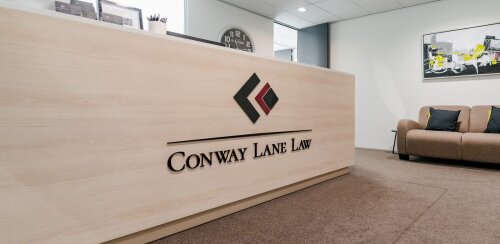Best Sanctions & Export Controls Lawyers in Rangiora
Share your needs with us, get contacted by law firms.
Free. Takes 2 min.
List of the best lawyers in Rangiora, New Zealand
About Sanctions & Export Controls Law in Rangiora, New Zealand
In Rangiora, Sanctions and Export Controls law operates under national legislation rather than local rules. New Zealand applies United Nations sanctions and enforces export controls to prevent restricted goods and technologies from leaving the country. The framework is administered by the Ministry of Foreign Affairs and Trade (MFAT), with enforcement and screening carried out by New Zealand Customs Service at points of export and import.
For local businesses in Canterbury and the wider Rangiora community, compliance means screening destinations, verifying end-use and end-user, and obtaining licenses when required. Breaches can carry serious consequences, including criminal charges or civil penalties. A solicitor or licensed immigration and sanctions specialist can help clarify obligations and implement practical compliance measures.
Authorities emphasize that sanctions and export controls apply across industries, from agricultural exports to high-tech equipment. Given the cross-border nature of modern trade, Rangiora firms should build internal policies that align with national standards and MFAT guidance. See MFAT and Customs for official guidance and licensing pathways.
Key government resources for Rangiora residents include MFAT's sanctions information and the New Zealand Customs Service export controls guidance. These sources provide up-to-date rules, licensing requirements, and compliance steps for businesses and individuals.
Sources: Ministry of Foreign Affairs and Trade - Sanctions, New Zealand Customs Service, Legislation NZ.
Why You May Need a Lawyer
-
A Rangiora electronics distributor plans to ship dual-use components to a partner in Australia. A lawyer can determine if the items are controlled, assess licensing needs, and prepare or review the export license application with MFAT.
-
A Canterbury-based importer discovers a supplier linked to a restricted entity. A sanctions lawyer can help assess designation status, advise on prohibitions, and manage any required due diligence to avoid penalties.
-
Your business receives a compliance audit or inquiry from MFAT or NZ Customs. An attorney can coordinate the response, gather documents, and negotiate timelines to minimize disruption.
-
You suspect a transaction crossed an embargo or involved a sanctioned destination. A solicitor can guide voluntary disclosure, mitigation steps, and potential defense options.
-
You want to implement a robust sanctions and export controls compliance program in Rangiora. A legal adviser can design policies, train staff, and establish screening and licensing workflows tailored to your industry.
-
Your company faces an enforcement action or criminal investigation. A specialised sanctions attorney provides legal representation, evidence handling, and negotiation with authorities.
Local Laws Overview
-
Export Control Act 2020 - establishes the framework for licensing the export of controlled goods and technologies from New Zealand. It outlines which items require licenses, the licensing process, and enforcement provisions. See the Act on legislation.govt.nz for current text and amendments.
-
Sanctions Act 2021 - provides the authority to designate persons, entities, and regimes for targeted sanctions, and sets out prohibitions on dealings with designated parties. The Act works in concert with MFAT and law enforcement to enforce sanctions in commerce and finance. See the Act on legislation.govt.nz for current text and amendments.
-
Regulations under the Export Control Act and Sanctions Act - these regulations specify controlled goods lists, licensing procedures, and compliance obligations for importers and exporters. Regulatory updates in 2023-2024 have refined designation processes and expanded screening requirements. See MFAT guidance and legislation.govt.nz for the latest regulatory details.
Recent changes focus on alignment with international sanctions regimes and strengthening due diligence requirements for businesses. For Rangiora and Canterbury exporters, staying current with MFAT advisories and regulatory amendments is essential to avoid inadvertent breaches. See official sources for the most up-to-date rules: MFAT, NZ Customs, and Legislation NZ.
Frequently Asked Questions
What is sanctions law in New Zealand?
Sanctions law in New Zealand comprises national legislation that implements UN sanctions and imposes targeted restrictions on individuals, entities, and regimes. It governs financial dealings, trade, and technology transfers with designated parties. Understanding designation lists and compliance requirements is essential for any business engaging in cross-border activity.
How do I know if my shipment needs an export license in Rangiora?
You assess whether a product is controlled by checking the Export Control Act lists and MFAT guidance. If a good or technology is controlled, you must apply for a license before export. Licensing decisions depend on end-use and end-user information.
What is a 'controlled good' under the Export Control Act?
A controlled good includes certain military, dual-use, or strategically important items and technologies. Classification often requires technical data, end-use certificates, and end-user statements. A solicitor can help with correct classification and licensing matters.
How much can sanctions breach cost?
Penalties vary by breach and may include fines, imprisonment, or asset freezes. The exact amount depends on the severity of the violation and the applicable provisions in the Sanctions Act and related regulations. Legal counsel can quantify risk based on your situation.
Do I need a lawyer to handle sanctions compliance?
While not mandatory, a lawyer with sanctions experience helps interpret complex rules, implement a compliance program, and manage licensing and enforcement risk. In Rangiora, local counsel can coordinate with national agencies as needed.
What is the process to obtain an export license?
通常 the process involves submitting a license application to MFAT, providing product details, end-use plans, and recipient information. The agency may request further documentation and timelines vary by case. A solicitor can prepare and oversee the application.
When do sanctions apply to a business in Rangiora?
Sanctions apply whenever a business engages in prohibited transactions with designated persons, entities, or embargoed destinations. This includes import, export, financial transfers, and technology transfers.
Where can I check if a person or entity is designated?
Designation information is published by MFAT and available through official sanctions lists. Regular checks are essential for due diligence when choosing partners or suppliers.
Why are sanctions important for Canterbury region exporters?
Sanctions help maintain New Zealand's international obligations and reduce exposure to legal and financial risk. Canterbury exporters benefit from clear licensing pathways and predictable enforcement when they stay compliant.
Can I ship from Rangiora if I am subject to sanctions?
Shipping may be restricted or prohibited if the destination, end-user, or intended use triggers sanctions rules. Consult a solicitor to review your specific transactions and obtain necessary licenses if available.
Should I conduct a sanctions compliance audit?
Yes. A compliance audit helps identify gaps, update policies, and implement screening procedures. Regular audits reduce the risk of inadvertent breaches and can support defense if an inquiry occurs.
Do I need to report suspected sanctions breaches?
Yes. If you suspect a breach, you should consult legal counsel and may be required to report to MFAT or NZ Customs, depending on the circumstances. Timely disclosure can influence enforcement outcomes.
Additional Resources
-
Ministry of Foreign Affairs and Trade (MFAT) - Sanctions. Official guidance on how New Zealand implements sanctions, designation processes, and licensing requirements. https://www.mfat.govt.nz/en/trade/sanctions/
-
New Zealand Customs Service - Export controls, declarations, screening, and compliance for exporters and importers. https://www.customs.govt.nz/
-
Legislation NZ - Official statutes including the Export Control Act 2020 and the Sanctions Act 2021. https://www.legislation.govt.nz/
Next Steps: How to Find and Hire a Sanctions & Export Controls Lawyer in Rangiora
-
Define your needs and collect relevant documents. Gather product specifications, end-use statements, and any prior licensing correspondence. Set a target timeline for your matter.
-
Search for New Zealand based solicitors or barristers specializing in sanctions and export controls. Prioritize those with experience in Canterbury or Rangiora clients and cross-border trade.
-
Request initial consultations to assess fit. Prepare questions about licensing, defenses, potential penalties, and anticipated costs. Ask for a written engagement proposal.
-
Check references and confirm the lawyer’s familiarity with MFAT and NZ Customs processes. Verify their ability to coordinate with authorities if needed.
-
Obtain quotes and compare all-inclusive fees, including potential disbursements and licensing costs. Favor transparent billing for volume of work and potential outcomes.
-
Engage a suitable solicitor and sign a retainer. Provide full disclosure of all facts to enable accurate assessment and efficient handling of your case.
Lawzana helps you find the best lawyers and law firms in Rangiora through a curated and pre-screened list of qualified legal professionals. Our platform offers rankings and detailed profiles of attorneys and law firms, allowing you to compare based on practice areas, including Sanctions & Export Controls, experience, and client feedback.
Each profile includes a description of the firm's areas of practice, client reviews, team members and partners, year of establishment, spoken languages, office locations, contact information, social media presence, and any published articles or resources. Most firms on our platform speak English and are experienced in both local and international legal matters.
Get a quote from top-rated law firms in Rangiora, New Zealand — quickly, securely, and without unnecessary hassle.
Disclaimer:
The information provided on this page is for general informational purposes only and does not constitute legal advice. While we strive to ensure the accuracy and relevance of the content, legal information may change over time, and interpretations of the law can vary. You should always consult with a qualified legal professional for advice specific to your situation.
We disclaim all liability for actions taken or not taken based on the content of this page. If you believe any information is incorrect or outdated, please contact us, and we will review and update it where appropriate.









